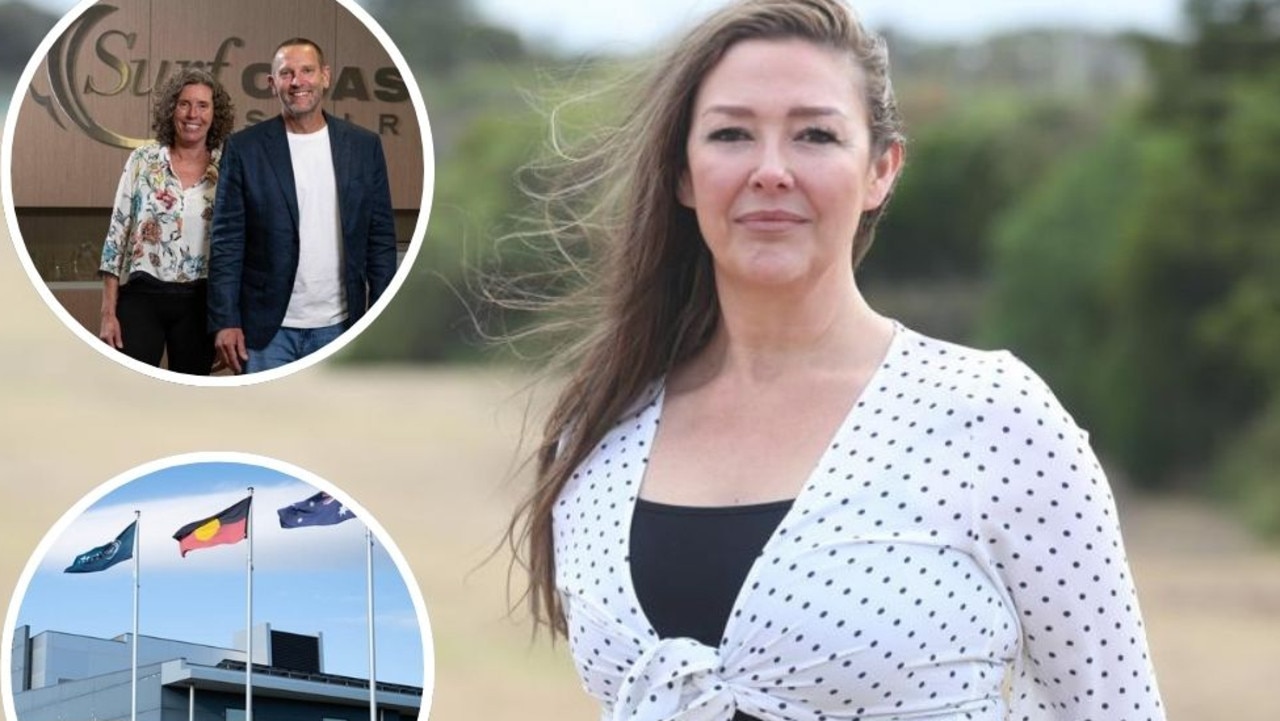Demand for weight-loss surgery soars in Geelong
Experts have warned Geelong residents that weight loss surgery is not a “miracle cure” for the city’s obesity epidemic.

Geelong
Don't miss out on the headlines from Geelong. Followed categories will be added to My News.
Demand for weight-loss surgery has surged in Geelong but experts warn it is no miracle cure amid the obesity epidemic.
St John of God Geelong Hospital has seen a 250 per cent increase in the number of patients accessing weight-loss surgery in the past five years.
Professor Judi Porter, from Deakin University’s Institute for Physical Activity and Nutrition, said the surgery was not a cure-all and it was important people understood risks and benefits.
“It should only be used when an individual has not achieved weight loss by a range of other measures,” Professor Porter said.
“It is an effective treatment to support weight loss but there are risks and close monitoring after surgery is needed.”
Curlewis mum-of-twoSusanne Cornellhas had weight-loss surgery twice and said she had tried “everything” from meal plans to gym challenges before making the decision.

The 41-year-old had a gastric sleeve procedure – which decreased the size of her stomach – in 2019.
While she lost weight initially she experienced complications with reflux and began to gain weight again.
She then had a gastric bypass –which created a new “pouch” to replace the function of the stomach – in 2020.
The first surgery left her $4000 out of pocket.
But for the second, she only had to cover a gap fee of $500 and anaesthetic expenses, as it was related to complications linked to the first surgery.
She has since paid more than $20,000 out of pocket for additional plastic surgery to improve skin issues related to drastic weight loss.
When she first decided to have weight-loss surgery, Mrs Cornell was a size 22-24 and is now about 10-14.

“I wasn’t keeping up with the kids (before) … I couldn’t go on a walk with them,” she said.
She said she was now a “grazer” and largely focused on eating protein, but felt sick if she ate more than a small portion.
Mrs Cornell said she did not regret her decision to have surgery and was the strongest she had ever been.
“It’s definitely not for everyone … it’s a big decision to make,” she said.
“I think a lot of people think it’s going to be easy.”
She said there should be more examination of mental health factors and what drives certain food behaviours.
Bariatric surgery is not offered at Barwon Health but people can access it through the public system in Melbourne.
A number of Epworth Geelong accredited specialists offered weight-reduction (bariatric) surgery, the hospital’s executive general manager Leonie Lloyd said.
“Patients are supported after their surgery by a multidisciplinary treatment team, including our allied health and nursing staff to assist with recovery,” she said.
“Costs vary depending on individual patient circumstances and their health cover and the surgeons can provide patients with a guide to out-of-pocket expenses.”

Geelong surgeon Darrin Goodall-Wilson performs weight-loss surgery at both the Epworth and St John of God hospitals.
He said demand had progressively increased, with a number of factors behind this, including rising acceptance from the public and patients seeing it as a viable option.
“The obesity epidemic is on the rise,” Mr Goodall-Wilson said.
He said in general, his rule of thumb for eligibility for patients was a BMI of more than 35.
“That said, BMI is a fairly crude measure of obesity,” he said.
“We are really swinging towards looking at controlling comorbidities.”
These included diabetes and sleep apnoea.
“One of the criteria we do use is that patients have made some non-surgical efforts (for weight loss) in the past,” he said.
“Usually, most patients have dealt with this for five, 10, 15 years at least.”
He said one way to measure success was by how much weight patients lost.
Another was the resolution of comorbidities, such as whether patients could sleep better and come off medications, he said.
“We would expect the vast majority (of patients) to have significant weight loss and significant resolution of their comorbidities,” he said.
But he saidonly a minority of patients got down to a “completely healthy, normal weight”.
“The vast majority of patients would lose at least 50 per cent of the weight they need to lose,” he said.
Psychological assessments before going ahead with surgery sought to identify any behaviours that could sabotage the success of the procedure, Mr Goodall-Wilson said.
Prof Porter said obesity had been increasing across the globe.
“This includes Australia, where many more people are becoming eligible for bariatric surgery,” she said.
“However, relatively small amounts of weight loss can improve health and these can occur through non-surgical methods.
“With a greater focus on prevention and lifestyle changes, including a more active society and a food supply that is not overwhelmed with ultra-processed and high-energy dense foods, there would be less people needing to consider these surgical options.”
Prof Porter said there were “so many reasons” why people gained weight.
“These include biological factors and early life experiences, as well as complex behavioural and environmental reasons,” she said.
“We don’t fully understand the relationship of all of these factors, but prevention is certainly better than cure.”
Mr Goodall-Wilson saidmedications were emerging that were becoming more effective at producing the same sort of results as surgery, though they were not quite as good yet.
“I imagine in 20 years’ time most of the bariatric surgery will be revising things that have been done in the past,” he said.
“And I would hope there would be medication people can use to treat obesity when they get it and more importantly hopefully prevent it with lifestyle-type programs.”
More Coverage
Originally published as Demand for weight-loss surgery soars in Geelong






